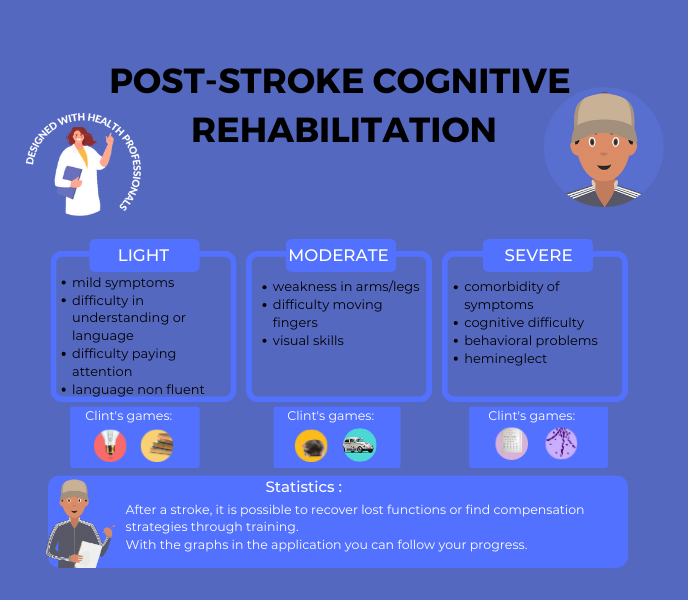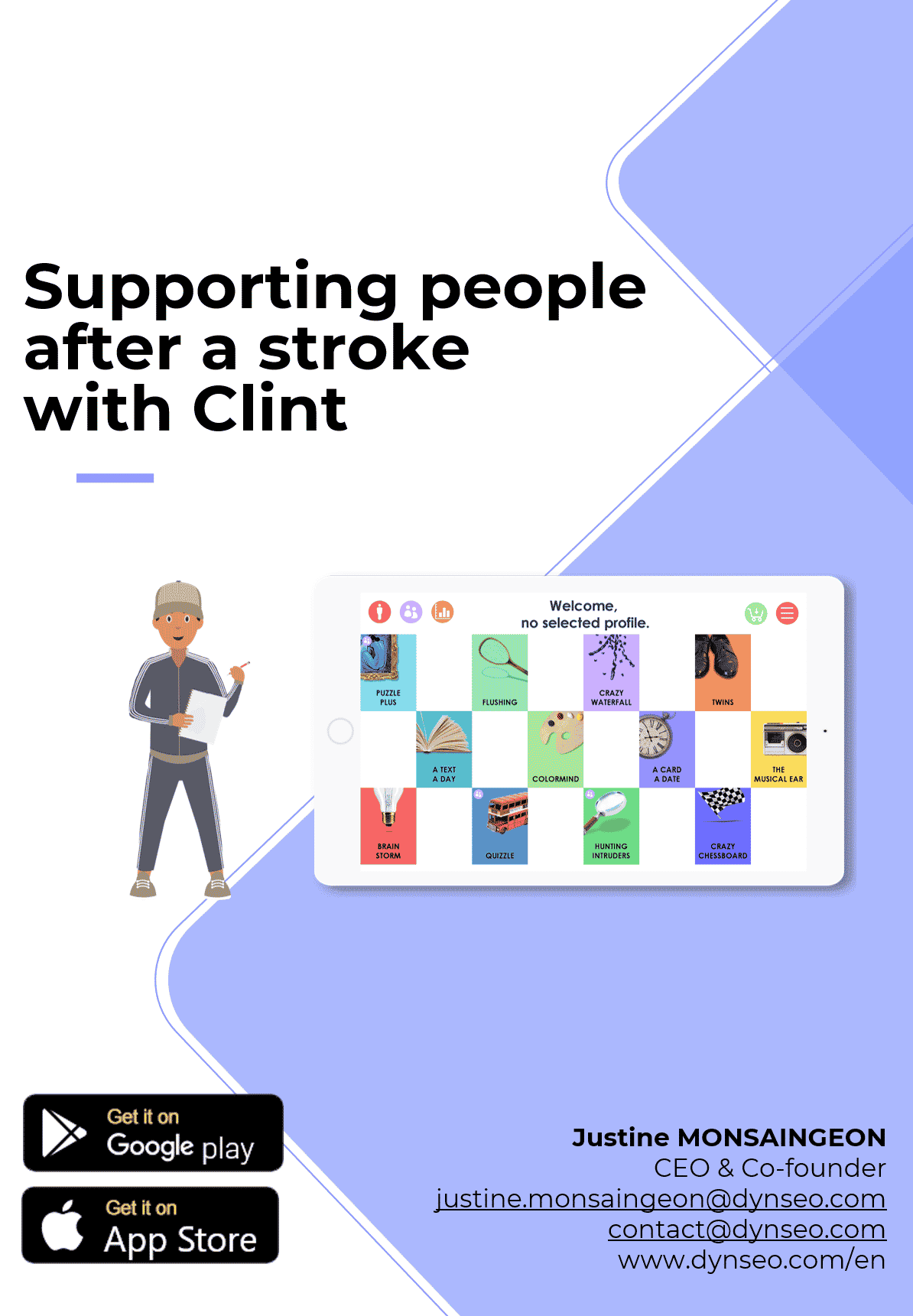Caregiving for stroke survivors is a multifaceted responsibility that encompasses various physical, emotional, and logistical challenges. It involves providing essential support and assistance to individuals who have experienced strokes, aiding them in their journey towards recovery and rehabilitation. The scope of caregiving for stroke survivors ranges from helping with daily activities such as bathing, dressing, and eating to offering emotional support and companionship during difficult times.
Caregivers of stroke survivors often face a myriad of challenges, including managing complex medical needs, navigating healthcare systems, and adjusting to lifestyle changes. They may also grapple with feelings of stress, exhaustion, and isolation as they balance caregiving duties with their own personal and professional responsibilities.
Understanding the definition and scope of caregiving for stroke survivors is crucial in developing effective strategies and resources to support caregivers in their vital role. By acknowledging and addressing the challenges faced by caregivers, we can strive to create a more supportive and compassionate environment for both caregivers and stroke survivors alike.
Understanding the Impact of Stroke on Caregivers
The impact of stroke on caregivers is profound and multifaceted, encompassing emotional, psychological, physical, and financial dimensions. Emotionally and psychologically, caregivers often experience significant strain as they navigate the complexities of caring for a loved one who has suffered a stroke. Witnessing the challenges and changes in the survivor’s health and lifestyle can lead to feelings of anxiety, depression, and grief. Moreover, the physical demands of caregiving, such as assisting with mobility, managing medications, and attending medical appointments, can take a toll on caregivers’ own health and well-being.
Financial burdens also arise, stemming from medical expenses, modifications to living spaces, and potential loss of income due to caregiving responsibilities. Recognizing and addressing these impacts is essential in providing comprehensive support to caregivers of stroke survivors.
Building a Support Network
Building a robust support network is crucial for caregivers of stroke survivors to navigate the challenges they face effectively. Family and friends play a pivotal role in providing emotional encouragement, practical assistance, and respite care for caregivers. Their understanding and empathy can offer solace and strength during difficult times. Additionally, support groups and online communities offer valuable resources and connections to individuals who share similar experiences and understand the unique demands of caregiving.
These platforms provide opportunities for caregivers to exchange advice, seek guidance, and find solidarity in their journey. By cultivating strong relationships within both personal circles and wider communities, caregivers can access the support and solidarity they need to sustain their caregiving efforts with resilience and compassion.
Self-Care Strategies for Caregivers
For caregivers of stroke survivors, embarking on the journey of self-care is not just an act of self-preservation; it’s a profound expression of self-compassion that enables them to extend the same level of care and empathy to their loved ones. The role of a caregiver, filled with both rewards and challenges, demands a wellspring of strength and patience, which can only be sustained through a committed practice of self-care. This journey is about recognizing that in order to pour into the lives of others, one must first fill their own cup.
Embracing Holistic Well-being: Incorporating regular exercise into one’s routine is not merely about physical health; it’s a powerful outlet for stress relief and mental clarity. Whether it’s a brisk walk in the early morning, a gentle yoga session, or a bike ride through the neighborhood, these moments of physical activity are invaluable pauses that rejuvenate the mind, body, and spirit.
Nutritious meals are another cornerstone of self-care, nourishing the body with the energy needed to face the day’s demands. It’s about choosing foods that not only fuel the body but also bring pleasure and satisfaction, turning mealtime into a nurturing ritual for oneself.
Sufficient rest is perhaps the most fundamental aspect of self-care, yet it is often the most overlooked. Quality sleep and periods of rest are crucial for mental and emotional resilience, allowing caregivers to approach their responsibilities with renewed energy and a calm mind.
Finding Respite in the Community: Seeking respite and time off is crucial, yet it requires caregivers to acknowledge their own limits and reach out for support. This can mean arranging for professional respite care to step in temporarily, allowing caregivers a well-deserved break. It’s also about leaning on the strength of family and friends, who can offer their time and presence, providing caregivers with the space to breathe and recharge.
Engaging in hobbies and leisure pursuits is not a luxury but a necessity. It’s in these moments of joy and fulfillment that caregivers find their spirits lifted and their hearts lightened. Whether it’s reading, painting, gardening, or any other activity that brings joy, these pursuits are vital escapes that replenish the caregiver’s soul and remind them of their identity beyond their caregiving role.
The Cycle of Care: Carving out dedicated time for self-renewal is not a one-time task but a continuous practice, vital for the longevity of the caregiver’s ability to provide compassionate care. It’s about creating a sustainable cycle of giving and receiving care, where the caregiver’s needs are met with the same importance as those of the stroke survivor.
Indeed, self-care strategies for caregivers are about weaving a tapestry of well-being that encompasses physical health, emotional resilience, and personal joy. It’s a journey marked by moments of self-reflection, connection, and renewal. By nurturing their own well-being, caregivers not only safeguard their health but also model the importance of self-care to their loved ones, creating a culture of care that supports the healing journey of the stroke survivor. In this way, self-care becomes a shared value, a beacon of hope and strength that illuminates the path forward for both caregiver and stroke survivor.
Effective Communication Techniques
Effective communication techniques are essential for caregivers of stroke survivors to foster understanding, trust, and cooperation in their caregiving relationships. Open and honest dialogues with the survivor lay the foundation for meaningful connections and mutual respect. Caregivers should create a safe space where survivors feel comfortable expressing their thoughts, concerns, and preferences regarding their care and recovery journey. Additionally, communicating needs and boundaries allows caregivers to assert their own limitations and requirements while maintaining empathy and compassion.
Clearly articulating expectations, expressing gratitude, and actively listening to each other’s perspectives promote effective communication and strengthen the caregiver-survivor dynamic. By fostering open communication and mutual understanding, caregivers can cultivate supportive relationships that facilitate optimal care and enhance the overall well-being of both parties involved.
Learning About Stroke Recovery and Rehabilitation
Learning about stroke recovery and rehabilitation is paramount for caregivers of stroke survivors to provide optimal support and assistance throughout the recovery journey. Understanding the recovery process involves gaining insights into the physical, cognitive, and emotional challenges that survivors may encounter post-stroke. Caregivers can educate themselves about the stages of recovery, potential complications, and strategies for promoting healing and rehabilitation. Participating in rehabilitation programs alongside survivors allows caregivers to actively contribute to their loved one’s progress and recovery goals.
Engaging in physical therapy, occupational therapy, speech therapy, and other rehabilitation interventions empowers caregivers to learn valuable techniques and exercises to assist survivors in regaining independence and functionality. By actively participating in the rehabilitation process, caregivers play a crucial role in facilitating the recovery journey and promoting the overall well-being of stroke survivors.
Practical Tips for Daily Caregiving Tasks
Navigating the daily caregiving tasks for stroke survivors with practicality and empathy is akin to guiding a ship through a dynamic and sometimes unpredictable sea. It’s about striking a balance between providing the necessary support and empowering the individual, ensuring their journey toward recovery is both safe and dignified. Here are some expanded insights and tips to make daily caregiving a more manageable and rewarding experience.
Ensuring Safe Mobility and Transfers: Assisting with mobility and transfers is a cornerstone of caregiving that requires both caution and understanding. The use of assistive devices, such as transfer belts and grab bars, not only provides the necessary support for safe movement but also instills a sense of security in stroke survivors. These tools are invaluable in facilitating smoother transitions from sitting to standing, moving from bed to chair, or navigating through the home. It’s important for caregivers to familiarize themselves with the proper techniques to use these devices effectively, ensuring both the safety of the stroke survivor and their own physical well-being.
Practicing proper body mechanics is not just a technique but a form of self-respect for caregivers. By employing the correct lifting and transferring techniques, caregivers can significantly reduce the risk of strain or injury. This might involve bending at the knees, keeping the back straight, and using the strength of the legs. In moments where a task seems too challenging, seeking assistance is not a sign of weakness but an act of wisdom, prioritizing the well-being of both the caregiver and the stroke survivor.
Streamlining Medication Management: The management of medications is a critical yet intricate part of daily care that demands precision and attention to detail. Organizing medications effectively can transform what might seem like a daunting task into a streamlined process. Utilizing medication organizers and setting reminders are practical strategies that can alleviate the complexity of managing multiple medications. These simple steps not only ensure adherence to prescribed dosages but also bring peace of mind to both the caregiver and the stroke survivor.
Maintaining open lines of communication with healthcare professionals is crucial in navigating medication management. This collaboration allows for the timely adjustment of treatments and the monitoring of any adverse reactions or changes in health status. It’s a partnership that underscores the importance of being proactive and involved in the care process, ensuring the stroke survivor receives the most appropriate and effective treatment.
Fostering a Collaborative Care Environment: Ultimately, the essence of daily caregiving lies in the strength of the relationship between caregivers and stroke survivors. It’s about building a collaborative environment where tasks are not just chores to be completed but opportunities for engagement and connection. This approach fosters a sense of teamwork and mutual respect, making the caregiving journey one that is shared and enriched by the experiences of both parties.
Incorporating practical tips into daily caregiving tasks is not merely about efficiency; it’s about enhancing the quality of care, promoting the well-being of stroke survivors, and safeguarding the health and spirit of caregivers. By adopting these strategies, caregivers can navigate the complexities of daily care with confidence and compassion, creating a nurturing atmosphere that supports the recovery and dignity of stroke survivors.
Coping with Caregiver Stress and Burnout
Caring for a stroke survivor can be emotionally and physically demanding, often leading caregivers to experience significant stress and burnout. Recognizing the signs of stress and burnout is crucial in addressing these challenges effectively and maintaining caregiver well-being. Seeking support from friends, family, and support groups can provide validation, empathy, and practical advice, offering caregivers a sense of solidarity and understanding in their journey. Additionally, implementing self-care practices such as regular exercise, mindfulness techniques, and engaging in enjoyable activities can help alleviate stress and promote emotional resilience.
By acknowledging the importance of caregiver well-being and implementing coping strategies, caregivers can navigate the demands of caregiving with greater ease and maintain their health and happiness.
Recognizing Signs of Stress and Burnout
Recognizing signs of stress and burnout is vital for caregivers of stroke survivors to address their own well-being and continue providing effective care. Common signs include feelings of overwhelm, fatigue, irritability, and difficulty concentrating. Caregivers may also experience physical symptoms such as headaches, sleep disturbances, and changes in appetite.
Emotional indicators such as sadness, anxiety, and withdrawal from social activities can also signal burnout. Recognizing these signs early allows caregivers to take proactive steps to address their stress levels and prevent burnout. By paying attention to their physical and emotional well-being, caregivers can seek support, implement coping strategies, and prioritize self-care to maintain their resilience and effectiveness in their caregiving role.
Seeking Professional Help and Counseling
Seeking professional help and counseling is an essential step for caregivers experiencing stress and burnout in their role. Professional counselors and therapists can provide a safe and supportive environment for caregivers to explore their feelings, address challenges, and develop coping strategies. Through therapy, caregivers can gain valuable insights, learn stress management techniques, and receive validation for their experiences.
Additionally, seeking help from healthcare professionals can ensure timely intervention for mental health concerns such as depression or anxiety. Whether through individual counseling, support groups, or online resources, seeking professional help empowers caregivers to prioritize their mental and emotional well-being while continuing to provide compassionate care to their loved ones.
Financial and Legal Considerations
Navigating financial and legal considerations is crucial for caregivers of stroke survivors to ensure comprehensive support and protection for both themselves and their loved ones. Understanding insurance coverage is essential for accessing necessary medical treatments, therapies, and assistive devices without incurring overwhelming financial burdens. Caregivers should thoroughly review insurance policies, including health insurance, long-term care insurance, and disability insurance, to ascertain coverage limits, exclusions, and reimbursement procedures.
Additionally, establishing legal documentation and power of attorney safeguards the interests and preferences of stroke survivors in managing their affairs and healthcare decisions. Drafting advance directives, wills, and healthcare proxies enables caregivers to advocate for their loved ones’ wishes and make informed decisions on their behalf during times of incapacity. By proactively addressing financial and legal considerations, caregivers can alleviate stress and uncertainty while promoting the well-being and autonomy of stroke survivors.
Resilience and Coping Strategies
Resilience and coping strategies are indispensable for caregivers of stroke survivors as they navigate the challenges inherent in their role. Finding meaning and purpose in caregiving can serve as a source of strength and motivation during difficult times. By recognizing the significance of their contributions and the impact they have on their loved ones’ lives, caregivers can derive a sense of fulfillment and purpose from their caregiving journey. Cultivating resilience through adversity involves developing adaptive coping mechanisms and seeking support from social networks, support groups, and mental health professionals.
Embracing challenges as opportunities for growth and learning, caregivers can cultivate resilience by maintaining a positive outlook, practicing self-care, and fostering connections with others who share similar experiences. Through resilience and coping strategies, caregivers can navigate the complexities of caregiving with grace and perseverance, ultimately enhancing their well-being and that of their loved ones.
Utilizing Available Resources and Services
Caregivers of stroke survivors can effectively manage their responsibilities by utilizing available resources and services. Government and nonprofit assistance programs offer financial aid, counseling services, and educational resources tailored to their needs. These programs, including Medicaid waivers and caregiver support grants, provide valuable support and guidance. Home health care and respite services are essential for caregivers to prevent burnout and ensure quality care for their loved ones.
Professional assistance with daily activities and medical monitoring through home health care services, along with respite services offering temporary relief, enable caregivers to maintain their own well-being while continuing to provide dedicated care. By accessing these resources and services, caregivers can navigate the challenges of caregiving more effectively and enhance the overall quality of life for themselves and their loved ones.
Empowering caregivers through support and resources is fundamental in ensuring the well-being of both caregivers and stroke survivors. The caregiving journey for stroke survivors presents numerous challenges, from managing daily tasks to navigating complex healthcare systems and grappling with emotional strain. However, by recognizing the importance of caregiver support and implementing effective strategies, we can create a more compassionate and sustainable caregiving environment.
Through open communication, access to information, and engagement with available resources such as government assistance programs and respite services, caregivers can receive the assistance they need to fulfill their vital role with resilience and compassion. By empowering caregivers, we not only enhance the quality of care provided to stroke survivors but also promote the overall health and well-being of caregivers themselves. As we continue to advocate for caregiver support and recognition, let us strive to foster a culture of empathy, understanding, and appreciation for the invaluable contributions of caregivers in our communities.
AND FOR FURTHER INFORMATION

CLINT, YOUR BRAIN COACH
With your JOE brain coach, you choose which cognitive functions to target: attention, concentration, executive functions, mental agility, strategy implementation, etc. A fun, efficient program that supports you every day.
Other articles that might interest you:
How Parents Can Contribute to Teacher Training
As we delve into the realm of education, it becomes increasingly clear that teacher training is not merely a...
Differentiated Instruction Approaches: Training and Practical Application
Differentiated instruction is a pedagogical approach that recognizes the diverse needs of students in a classroom. It...
Key Skills Teachers Need to Support Students with Special Needs
As we embark on our journey to support children with special needs, it is essential for us to cultivate a deep...







